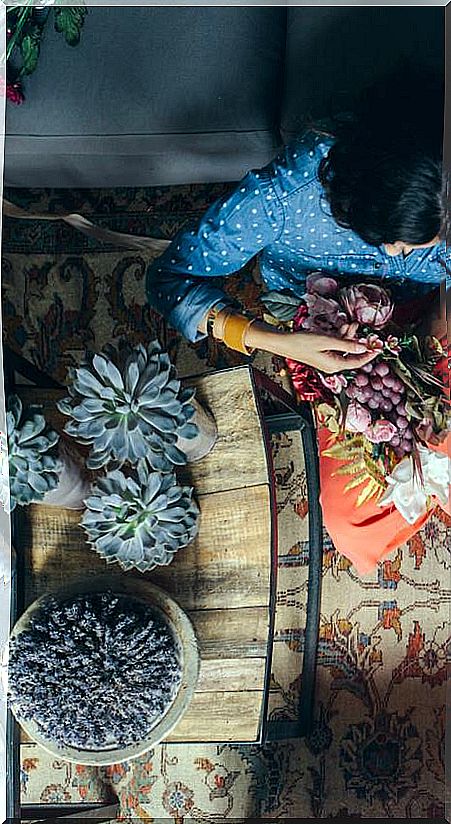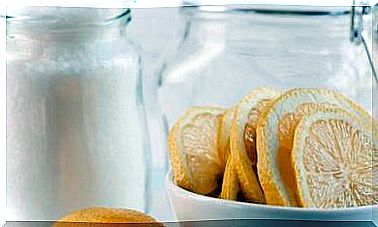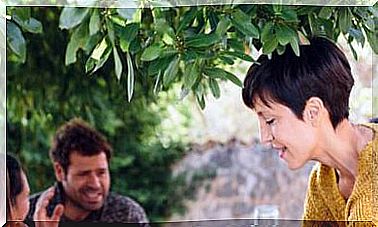Do You Plant Indoors? Yes, Please
Discreet and silent, they make homes and spaces more livable, transform the microclimate and purify the environment. Which are the most suitable?

The plants in our environment, whether growing on the windowsill, in the garden or inside the house, extend their beneficial effects around them, making our homes more welcoming and less toxic, and connecting us with the most basic vital rhythm and simple.
Reasons to fill your home with life
In the rural world, houses were protected from the wind and cold by planting trees, usually evergreen, that shelter and shelter buildings. But, in tradition, this protection of the family tree also attracted good fortune, in such a way that in the Basque Country, if many misfortunes happened in a hamlet, they used to say: “This house is without a laurel”.
The morality of the Castilian patios is another example of intelligent architecture: during the summer, the tree refreshes and transpires, humidifies the environment, provides shade and creates a stream that cools the house, while in winter its bare branches let the sun pass through.
Vegetables profoundly transform the microclimate of their environment at different levels.
In the same way, an indoor plant transpires and renews the air, regulates humidity and vivifies atmospheres rarefied by heating and air conditioning. Its role as an air filter is important to our well-being. Every time we clean the leaves, the cloth is dirty from the dust, smoke and particles that the plant has captured and removed from the air we breathe and from our lungs.
This is what we see, but there is a hidden effect of greater interest. Our plants capture and neutralize not only through their leaves, but also and very importantly through the roots, the soil and the microorganisms that inhabit it, harmful gases : formaldehyde, benzene, toluene and other pollutants emitted by paints. , varnishes, adhesives, chipboard, insulation … Toxic substances with very negative effects on our health.
Indoor plants: unlimited space
Potos, sansevieria, ferns, dracenes, ivy, ficus, orchids … are some of the most effective plants to eliminate harmful substances. Their purifying capacity is related to the surface they occupy.
It is very useful to group a few together to create a healthy microclimate, but a simple ivy that does not require much light or present difficulties to grow is capable of absorbing 12 micrograms of formaldehyde per hour or practically removing benzene from a room, all while hanging in an elegant way and puts a note of life in the home.
We inhabit smart buildings, endowed with amazing materials and technologies, but increasingly sterile and devoid of vital energy.
Only life can generate healthy and balanced spaces, and plants are key to restoring the physical and mental health of people and their habitats. We will not elaborate on their other beneficial effects, such as ionization of the air, but we encourage you to start growing them or dedicate more space and attention to them if you already do.
I don’t know anything about plants … where do I start?
We could advise books or turn to shops or experts to start, but from here we recommend the simplest and most natural. We talk to the neighbor or crafty neighbor, who will give us a cutting of her favorite plant and advice on how to grow it.
The “brotherhood of gardeners” is one of the few areas in which knowledge and curiosity, cuttings and seeds are still naturally and disinterestedly shared. That will be, without a doubt, another of the gifts that are implicit in the new “trade”.
Physical … and mental health: taking root
The plant, not only in itself, but for all that it represents in terms of dedication and affection, is the antithesis of the time we dedicate to survival or productive activities or that we invest in virtual worlds.
We can spend hours hanging from the landline or mobile, but from time to time it is good to remember to live and return to Earth like someone who lands after a long space trip.
Whoever plants a vegetable garden or a garden develops the certainty that he has already arrived and does not want to be anywhere else. But even the small plants in the house or office are capable of acting, without our barely realizing it, on our state of mind and help us to be present, to tune into the world inside and outside, to forget why a moment the pretensions of being or doing something else.
As the flower said to Saint-Exupéry’s Little Prince: “Men have no roots, you never know where to find them, the wind carries them and this causes them bitterness.” Too many times our hectic activity prevents us from enjoying life and taking root in the world of the small, the beautiful and the living, and for this the humble basil is the most excellent companion and teacher.
Tulsí: the holy basil
Plants help us to get closer to what is alive and fraternal in each one of us and in others. That is why in many traditions plants are a symbol of well-being.
A famous Hindu myth tells that when the god Krishna came down to Earth, the other gods began to miss him and devised a stratagem to bring him back.
Satyabhama, the wife of Krishna, asked Narada, son of Brahma, how she could have her husband forever. He replied that one possesses eternally in the other life what one has given in this one. Without thinking, Satyabhama handed her husband over to Narada and they both returned to heaven.
It had not been long when the queen, unable to bear the absence of Krishna, again implored Narada for his return and he improvised another trick to prevent it: if he wanted to recover him, he would have to give in exchange offerings equivalent to the weight of his own body. Krishna, but warned the queen, to excite her pride, that she may not have enough wealth to do so.
At first, this did not seem very difficult. Queen Satyabhama built a large scale and the god sat on one of the plates while the queen boastfully placed the jewels and gold vessels of her immense treasure on the other. It was useless; The more riches he amassed, the more the scale seemed to tip to Krishna’s side. Helpless, he realized that the task was impossible.
It was then that she asked the humble and devoted Rukmini for help, who as she approached was taken aback by the absurd idea of trying to equalize the weight of the god with material objects.
Rukmini took a single leaf of tulsi, the holy basil that grew right there, removed all the jewels from the scale, and put the leaf in its place while uttering Krishna’s name with devotion. The balance was tipped at that moment as if the body of the god was as light as a feather.
The story continues to be told today under different versions, and in all of them there are religious, moral and philosophical connotations, but at the same time they highlight the importance of this plant that is used in rituals and spiritual life in much of India.
It is believed that holy basil, which in this tradition has divine origin, exerts a protective influence on the places where it grows, warding off all evil, purifying the environment and guiding those who cultivate and worship it along the path that leads to paradise. heavenly.
In some regions of India, the home altar is the tulsi itself, to which prayers are directed. It is watered and cared for with care in the belief that divinity somehow resides in this plant that is related to the perfume of devotion and humility.
Basil in our culture
The basils that we grow in our environment are different species but closely related to the sacred tulsí.
As in India, here they are part of ancient traditions, such as the gift of a basil pot as a sign of good neighborliness that was made in spring among the neighbors of the Mediterranean towns.
In Palma de Mallorca, a branch of this plant called alfàbrega, taken in the San Bernat pilgrimage, serves as protection throughout the year, and we still have a basil festival in Bétera (Valencia) in which huge plants are exhibited. cultivated with care and watered up to ten times a day with the purest water that can be found, rain or spring if possible.
Throughout the summer, basil feeds us with its beauty and aroma, is used as a medicine or condiment, repels flies and mosquitoes and finally becomes a sign of prestige of the humble, in everything similar to the centennial tree of the manor houses.
In the symbolic language of country houses, a leafy basil leaning out of your window means: “This is a good family”, and the freshness of the plant shows the affection and benevolence that its inhabitants give off.
- Find out more Rachel Frely. Beneficial and decontaminating plants . Obelisk, 2013.









